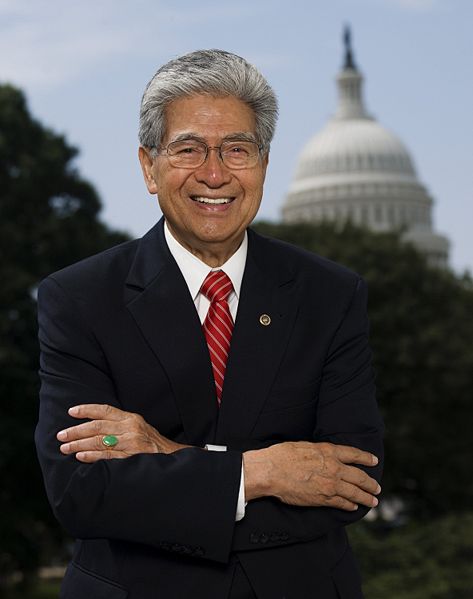Today, we are continuing our guest series on the history of Indian gaming in California by Jim Marino. Today’s excerpt (originally published in the Santa Ynez Valley Journal) looks more specifically at how we arrived at the legal definition of “Indian”–at least as far as the federal government and Indian gaming regulation is concerned. As accustomed as we generally are to the notion of an intrusive and exacting federal bureaucracy, it is shocking to learn exactly how loosely this term is interpreted.  Other items of note in today’s excerpt is the way that land is defined (or acquired) as “tribal land” for the purposes of casino construction and the liability loopholes that Indian casinos are able to operate under.
THE INDIAN GAMING AND REGULATORY
ACT OF 1988: A WELL INTENDED LAW GONE AWRY
Santa Ynez Valley Journal
By Jim Marino, Guest Columnist
April 22, 2010
(Part 2)
Last week I wrote about the history of Indian gambling and the 1987 landmark case of Cabazon Tribe v. California leading up to the hasty enactment of the IGRA.
The first mistake Congress made in trying to clarify for the states the impact of the Supreme Court in the Cabazon case was in the name of the Act itself. To me, games are checkers, chess, basketball, etc. The gambling industry came up with the name change, calling gambling games “Gaming.†They apparently hoped to shed the inherent stigma associated with gambling activities and transform gambling into what they classify as recreational entertainment.
If it were really a “game†then the visitors, who nearly always lose, would have the worst record of anyone competing in any “game†against the home team. Not only the fact that the odds of winning anything are so poor, it is hard to imagine that anyone could describe losing large amounts of money as “entertainment.†What Congress failed to realize, or perhaps intentionally ignored, was that when they enacted the IGRA, there was already in place a long and confusing set of laws, rules and case decisions loosely called “Indian Law.†Some of the obscure, often irrational and unintelligible provisions of this body of law would shock most reasonable people. The advent of Indian gambling, however, exposed this body of existing laws to widespread public scrutiny, particularly when the extent and application of these principals, are now being applied to the non-Indian public who frequent the expanding numbers of Indian casinos and other Indian businesses.
One would think the first simple question that Congress would have asked before enacting this controversial legislation is, “Who is an Indian?†More particularly before giving any Indian tribe the right to operate an essentially unregulated gambling casino, Congress would have also needed to understand “What is an Indian tribe?â€
In the former case, an Indian is anyone who claims to be part Indian or who is a member of any self-styled “Indian tribe,†or in the eyes of the federal government, an Indian is whoever a recognized Indian tribe decides is an Indian. Once one of these often questionable tribes attains official acknowledgement status, the BIA never questions tribal government’s assertion or representations about who is a tribal member, who isn’t a member or who they decide to kick out as no longer members: a practice euphemistically described as “disenrollment.†Until relatively recently, there were not even any objective criteria to be applied by the BIA in making a determination to acknowledge or recognize who constitutes an “Indian tribe.†Ever since the adoption of at least some rules and objective criteria, as set out in 25 CFR part 83, those rules and criteria are, never the less, often ignored. So in a nutshell, an Indian tribe is whoever the federal government says is an Indian tribe.
That is why there are now more than 600 Indian tribes in this country, many with only a handful of members, some with only one or two and many with highly questionable, if any, fractional ancestry linking them to a real Indian. Since the advent of federal programs providing grant monies to “Indian tribes†and particularly since the advent of Indian gambling, there have been many more groups claiming to be Indians and seeking federal acknowledgment as a “tribe†or “band†of Indians.
In fact, Indian tribes like the so-called “Mashantucket Pequot Indians,†which started with “Skip†Hayward and a couple of relatives, parlayed a faux tribal recognition, into the billion-dollar-a-year “Foxwoods Casino†in Ledyard, Conn. They have set as an enrollment criteria, a 1/32nd Indian ancestry or blood quantum and it is no wonder that these tribal members literally came out of the woodwork and the tribal enrollment now exceeds 700. Having that minute a fraction of Indian ancestry, however, did not prevent them from owning and operating that billion-dollar-a-year gambling casino at Foxwoods, all done with the sanction of the Bureau of Indian Affairs and the National Indian Gaming Commission, just because there are and were no objective standards applied.
So there is no surprise that hundreds heretofore never heard of “Indians†and “Indian tribes,†are lining up for recognition and the right to own and operate lucrative gambling casinos, and hiring lobbyists and paying off politicians to grease the wheels of recognition in Washington.
Lobbyists like the now disgraced and imprisoned Jack Abramoff, whose assistance was instrumental in obtaining recent recognition for the Mashpee Wampanoag is now seeking to build a casino on or near Cape Cod, Mass. This is a recent federally recognized Indian tribe, which was determined by a federal judge to lack the very criteria for recognition needed, in a case decided during the 1970s, when the tribe tried to take over acres of land around Mashpee, Mass., including the massive multi-million dollar New Seabury country club and resort development.
Not only did Congress fail to clarify what constitutes an “Indian tribe†and who is an Indian when they enacted the IGRA, they also failed to clearly define what lands are the “Indian Lands†required by that Act, and which are the lands a tribe is required to have before they can build, own and operate any gambling casino.
This failure has opened the door to real Indian tribes as well as highly questionable tribes alike, to buy or acquire fee land usually, with money furnished by non-Indian gambling investors, and then claim it is eligible “Indian Lands†on which they can build and operate a gambling casino and can do so wherever they believe there is a lucrative non-Indian gambling market to be had in the area. This has fostered a practice now called “reservation shopping!â€
Not only did Congress enact the IGRA without addressing these important issues and weaknesses in federal Indian policy, regarding who is an Indian, what constitutes an Indian tribe and what constitutes “Indian Lands†that are eligible for gambling casinos, Congress failed to address another important legal doctrine. A legal anomaly created by various federal court decisions giving Indian tribes, their officers, agents, casinos and other businesses, total immunity from lawsuit no matter how outrageous their conduct may be.
On top of that, with a few exceptions, Indian tribes and their businesses operate without complying with almost all state and local laws enacted for the protection of all customers, consumers, workers and the nearby communities based on the legal and political fiction they are somehow a sovereign political governmental entity. These numerous laws were enacted by virtually every state to protect workers and customers, the environment and quality of life for adjacent communities everywhere. However, they do not apply to Indian casinos and businesses. Finally, Indian tribes can evade all of the many state and local taxes, which are clearly needed to fund all the infrastructure and public services that these Indian tribes and their casinos and businesses uses regularly at the rest of the non-Indian taxpayer expense.
This common law [court-made] legal immunity doctrine barring injured and damaged persons from suing an Indian tribe, its casinos and business was described in 1998 U.S. Supreme Court case as having been created, “almost by accident†by the earlier Turner case decided in 1921 and was described by the Court as a legal anachronism in need of elimination. In that case, [Kiowa Tribe of Oklahoma versus Manufacturing Technologies, Inc.] after concluding this doctrine should be eliminated in this day and age where the Indian tribes own and operate lucrative gambling casinos, hotels, restaurants, amusement parks, marinas, shopping centers and other businesses – all open to the public and employing non-Indians – a majority of the court nevertheless concluded that it was up to Congress to fix legal anomaly created by a succession of cases decided by liberal federal judges in court decisions decided over the past 70 years.
Even though that Kiowa case was decided 12 years ago in 1998, and despite the fact the court informed Congress could simply amend the Foreign Sovereign Immunity Act, which federal law provides that any foreign country or business operating in the United States must obey all the same laws, pay all the same taxes and can be sued just like everyone else can be for their misconduct.
Because Congress has not acted, then to this day, customers who patronize any Indian casino or business, or anyone who works in an Indian casino and business, have no legal or Constitutional rights. In other words, they patronize these casinos and businesses at their own risk. As one Florida judge said, while reluctantly dismissing a woman’s valid lawsuit for injuries caused by an Indian tribe in their casino, “The law should require a large sign at the entrance to all Indian casinos and businesses warning people that are entering at their own risk.†When one thinks of the hundreds of state and local laws defining and regulating many things necessary for the public welfare and safety, one has to wonder what Congress was thinking, or perhaps not thinking, by passing a federal law allowing Indian tribes to own and operate gambling casinos and a wide variety of businesses that are not subject to state and local laws, are not taxable for all public services and infrastructure they use regularly and are immune from lawsuits by anyone who has been damaged or injured by misconduct of the tribe, its agents and employees or businesses.
Lastly when Congress enacted the IGRA, allowing some tiny federally acknowledged “Indian tribes†to make tens of millions in profits from gambling losses, they did nothing to amend the many existing laws that provide millions of dollars in tax monies via grants and welfare funds set aside for Indians in general. Consequently, these fractional “Indian†descendants and often questionable “tribes†making hundreds of millions of dollars in casino profits, still get millions in federal grant monies and welfare aid while thousands of real Native American Indians still live on remote reservations in conditions of abject poverty and get nothing more that the pittance they live on.
Clearly enacted by Congress with good intentions, but it is a law done badly awry.
NEXT TIME: “THE RESULTS OF THE I.G.R.A. THE PASSAGE OF PROPOSTITION 1A AND THE FLOOD OF INDIAN GAMBLING IN CALIFORNIA.â€






